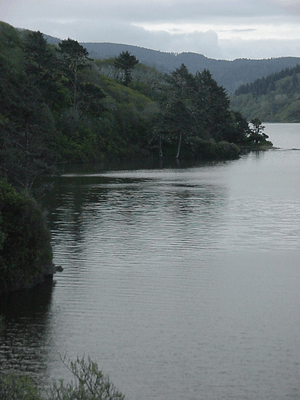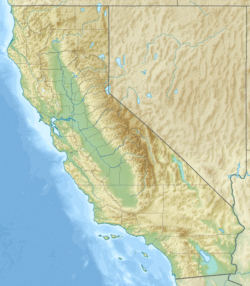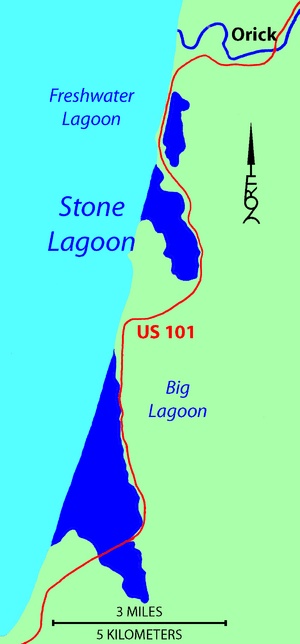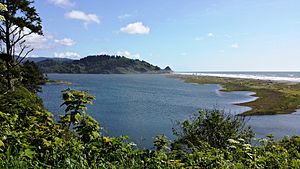Stone Lagoon facts for kids
Quick facts for kids Stone Lagoon |
|
|---|---|

Stone Lagoon viewed from the north
|
|
| Location | Humboldt County, California |
| Coordinates | 41°14′37″N 124°05′40″W / 41.24361°N 124.09444°W |
| Type | lagoon |
| Primary inflows | McDonald Creek |
| Primary outflows | Pacific Ocean |
| Basin countries | United States |
| Max. length | 2.0 mi (3 km) |
| Max. width | 0.7 mi (1 km) |
| Surface elevation | sea level |
Stone Lagoon is a special type of lake called a lagoon. It is the second of three lagoons found within Humboldt Lagoons State Park in Humboldt County, California.
You can find Stone Lagoon along the coast of Northern California. It sits between the towns of Trinidad to the south and Orick to the north.
Lagoons are like shallow bays. They are separated from the Pacific Ocean by a sandy strip of land. This sand bar is built up by the ocean's waves.
These lagoons are very important resting spots for waterfowl. These are birds like ducks and geese that fly long distances. They use the lagoons as a stop on their journey along the Pacific Flyway. This is a major bird migration route.
How Stone Lagoon Formed
Stone Lagoon is similar to other coastal areas in northern California. This includes Humboldt Bay to the south and Lake Earl to the north.
The land around Stone Lagoon is mostly flat, but it is surrounded by steep hills. Scientists believe that the land here has moved up and down over many centuries. This movement is due to tectonic activity deep underground.
When the land rises, the area might become a freshwater wetland or a forest. When the land sinks, it might turn into a salt marsh or be covered by ocean water.
Right now, a sand bar usually separates Stone Lagoon from the ocean in the summer. But in winter, heavy rain can make the water level in the lagoon rise. This extra water and strong ocean storms can break open the sand bar.
When the sand bar breaks, the lagoon's water flows into the sea. Then, ocean tides can flow into the lagoon until waves build the sand bar back up again.
Fun Things to Do
Stone Lagoon is almost completely surrounded by Humboldt Lagoons State Park. This makes it a great place to visit and enjoy nature.
You might see Roosevelt elk grazing in the wetlands south of the lagoon. They are often visible from U.S. Route 101.
You can also reach the beautiful Pacific coast beaches from a side road. This road leads to the "Dry Lagoon" day use area, which is south of Stone Lagoon.
If you like to paddle, you can launch a canoe or kayak into the south end of Stone Lagoon. There is easy access right next to Highway 101.
 | Percy Lavon Julian |
 | Katherine Johnson |
 | George Washington Carver |
 | Annie Easley |




